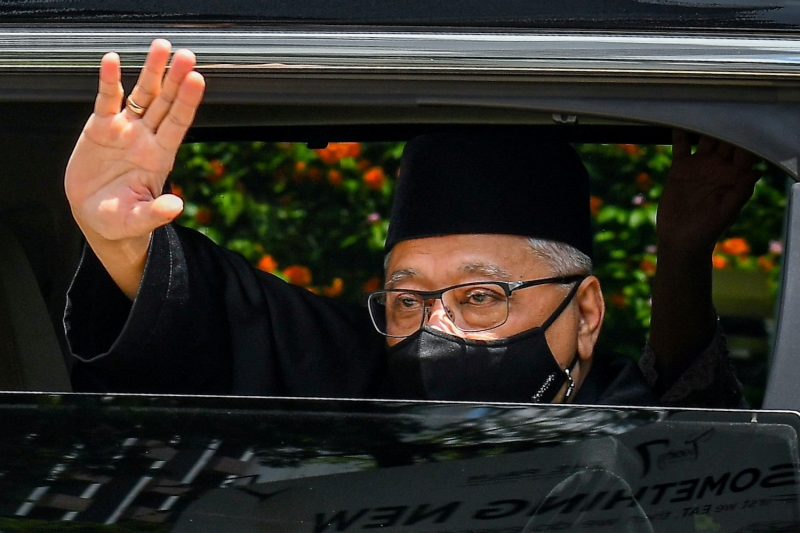Malaysia will hold a general election on November 19, the country’s election commission said on Thursday.
The announcement follows Prime Minister Ismail Sabri Yaakob’s move 10 days ago to dissolve parliament and seek new polls, saying an election would end years of political instability.
The country is emerging from the ravages of Covid-19 and the multi-billion-dollar 1MDB corruption scandal.
Polls were not due until September next year but Ismail faced intense pressure from within his United Malays National Organisation (UMNO) party to dissolve parliament and secure a strong mandate in early elections.
The dissolution came days after the government unveiled a populist budget that included a few billion dollars worth of cash handouts and a cut in personal income taxes.
ALSO SEE:
Malaysia Turns to Tech to Solve Palm Fruit Labour Shortage
Political Turmoil
Malaysia has been in political turmoil since the last national elections in 2018 when a reformist pact steered by ex-leader Mahathir Mohamad overwhelmingly defeated an alliance led by UMNO, the main party that ruled the country for more than 60 years.
Then incumbent Najib Razak – who was embroiled in a spectacular scandal, in which billions of dollars were looted from the 1MDB sovereign wealth fund – was ousted as prime minister.
He was later convicted of corruption following a lengthy trial and started serving a 12-year jail term in August for the initial batch of charges. He faces more charges that could put him in jail longer.
Hopes for stability after Najib’s ouster faded quickly, however, as Mahathir’s government collapsed after 22 months due to bitter infighting.
He was succeeded by his former right-hand man Muhyiddin Yassin, but growing public anger over his handling of the pandemic forced him to resign less than two years after he took office, and Ismail was named Malaysia’s new leader.
Ismail’s rule has been relatively peaceful after he signed a truce with the country’s opposition to allow the government to focus on recovery after the worst of the pandemic.
Hunt for Stability
Analysts said there was hope the election will produce a new government with a stronger mandate to shepherd the country over a five-year term.
“People are looking for political stability,” James Chin, a professor of Asian studies at the University of Tasmania, told AFP. “People are just sick and tired of the three governments Malaysia had since 2018. And people realise that for the government or for the country to move forward, you need political stability.”
The election process is based on the ‘first-past-the-post’ system, which means the party or coalition that wins 112 seats – the number needed for a simple majority in the 222-seat lower house of parliament – will form a government.
About 21.1 million Malaysians are eligible to vote in the upcoming election. Some five million will be voting for the first time, largely as a result of the government lowering the minimum voting age to 18 years from 21 last year.
Voting is not compulsory and turnout fluctuates. In the last 2018 polls, 82% out of nearly 15 million voters cast their ballots – one of the highest in Malaysia’s history.
Two Main Coalitions
No single political party has ever formed a government on its own, and the multi-ethnic make-up of Malaysia’s society has a major influence on the composition of coalitions.
There are two main coalitions vying to form government – Barisan Nasional (BN), which is the current ruling coalition, and the opposition Pakatan Harapan.
Barisan Nasional is led by the United Malays National Organisation (UMNO), a Malay nationalist party that prioritises interests of the ethnic-Malay majority.
UMNO returned to power in 2020 as part of another alliance after the Pakatan Harapan-led coalition collapsed.
The opposition is a multi-ethnic coalition led by the reformist party, Parti Keadilan Rakyat.
Pakatan Harapan won the 2018 election under the leadership of former premier Mahathir Mohamad, but lost power two years later due to infighting. Anwar Ibrahim currently leads the alliance, and will be the coalition’s candidate for prime minister.
Current premier Ismail Sabri has been named as Barisan Nasional’s candidate to be prime minister again.
His predecessor Muhyiddin Yassin will also vie for the top post as candidate for a third alliance between the Malay-focused Bersatu and Islamist party PAS.
- Reuters with additional editing by Jim Pollard
ALSO SEE:
US Jury Finds Ex-Goldman Banker Guilty in 1MDB Case
Malaysia Appeals Court Upholds Najib Razak’s 1MDB Conviction
Goldman Sachs to Pay $3bn to Settle Charges over 1MDB Scandal
Malaysia Says It Will Ratify ILO Protocol to Fight Forced Labour
























